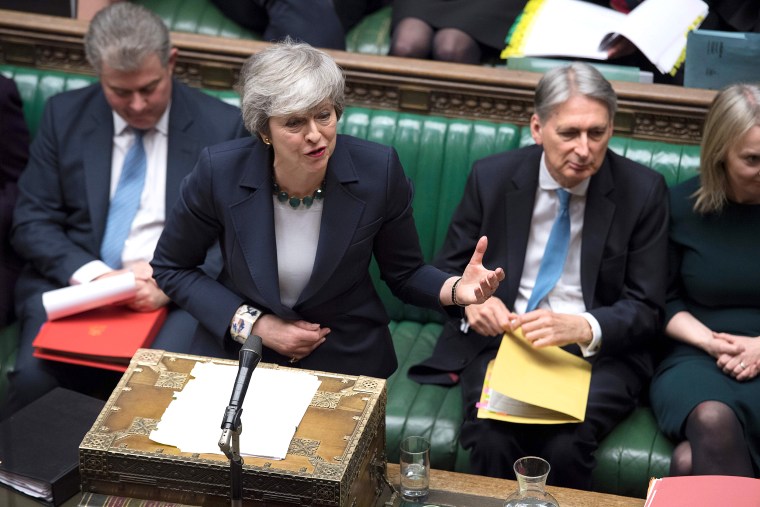LONDON — British lawmakers on Wednesday overwhelmingly rejected leaving the European Union without a deal, paving the way for a vote to delay Brexit to seek a way out of Britain's worst political crisis in generations.
Lawmakers voted by in favor of a cross-party motion that ruled out a potentially disorderly "no-deal" Brexit under any circumstances.
It went further than the government's own planned motion, which noted that parliament did not want to leave without a deal on March 29 and that the default legal position was to leave without a deal unless one was ratified by parliament.
While the approved motion has no legal force and ultimately may not prevent a no-deal exit after a possible delay, it carries considerable political force.
After two-and-a-half years of negotiations and two failed attempts to pass a Brexit deal proposed by Prime Minister Theresa May, the vote against a no-deal exit still leaves undecided how, when and on what terms Britain will leave the club it joined in 1973.
After lawmakers crushed her deal for a second time on Tuesday, May said it was still the best option for leaving in an orderly fashion.
As the United Kingdom's three-year Brexit crisis spins towards its finale, diplomats and investors see four main options: a delay, May's deal passing at the last minute, an accidental no-deal exit or another referendum.
If Britain does seek a delay, it will require the agreement of all the bloc's other 27 members. The EU would prefer only a short extension, with the deadline of EU-wide parliamentary elections due May 24-26, although it is unclear that this would be long enough to solve the impasse in London.
